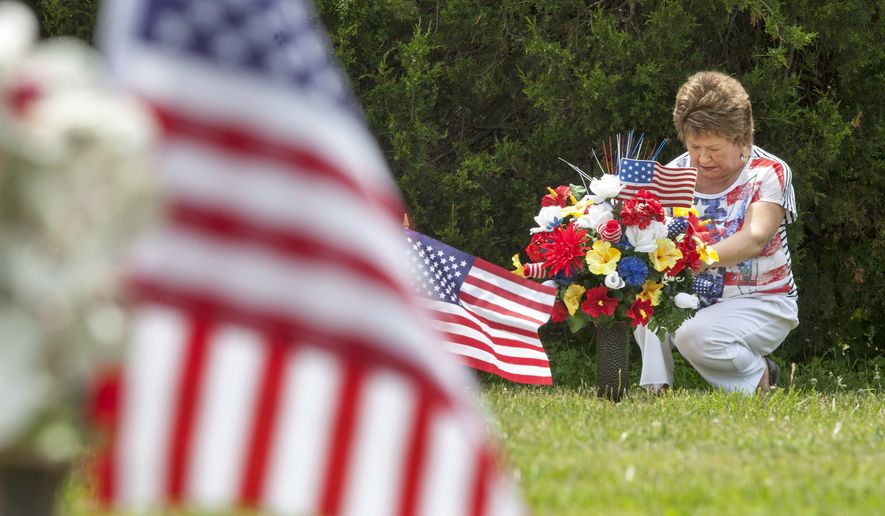Memorial Day will not be a day off for Navy Lt. Loren Crone, but it will also not be just another Monday at the office.
As millions of Americans prepare for a day filled with beer and barbecues, Lt. Crone, a chaplain at Marine Base Quantico, will be delivering an invocation at a memorial service at Quantico National Cemetery, which will take place at 11 a.m.
On a day when America honor its military veterans and those who fell in defense of the country’s freedoms, chaplains face a special obligation to comfort the grieving and honor the sacrifices of all those who served.
Originally called “Decoration Day,” Memorial Day began in the years after the Civil War as a way to honor the dead from both sides. On the first Decoration Day in 1868, Gen. James Garfield — who would be elected president 12 years later — spoke at Arlington National Cemetery, after which 5,000 participants helped to decorate the graves of the more than 20,000 Union and Confederate soldiers interred on the grounds.
It would take more than a century before Memorial Day became a fully fledged federal holiday in 1971.
For military chaplains like Lt. Crone, a posting such as Quantico only adds to the significance of the day and to the gravity of the duties they perform each year.
“That’s actually one of the challenges to working here,” said Lt. Crone. “Whereas Arlington National Cemetery has a staff of chaplains specifically assigned to perform services, there is no such staff for Quantico National Cemetery, so the base has to support those services.”
Quantico National Cemetery occupies 725 acres in Northern Virginia and was formally established as a national cemetery in 1983.
In addition to delivering invocations, memorial services and benedictions, the lieutenant and his fellow chaplains on base serve over 25,000 Marines, other service members, government employees, contractors and families who work or live aboard the base. Because the job has so many facets, Lt. Crone and his colleagues often jokingly refer to themselves as “moral and morale consultants.”
“There’s no such thing as a ’typical day’ for a Navy chaplain,” he said in an interview late last week. “You’re constantly counseling people, teaching ethics, conducting other training. Today I gave an invocation in the morning, and I’ll be attending a memorial banquet tonight.”
The job has been made even more difficult due to the fact that “there just are not as many chaplains as there used to be,” said Lt. Crone, noting that jobs like his and others in staff roles often have to be cut when military budgets are tight. Currently serving Quantico’s tens of thousands of military and civilian personnel are 11 full-time and one contracted chaplain from seven different faith traditions, including Catholicism, Islam and Protestantism.
And while the chaplain’s job comes with a “clerical privilege,” necessary to counseling sailors and marines, Lt. Crone’s military roles, standards and responsibilities as a staff officer are just the same as his colleagues.
“We’re still officers,” he explained, “and we’re still expected to meet the same requirements as other officers, which includes physical fitness standards and height/weight requirements.”
The United States Navy Chaplain Corps was established on November 28, 1775, with a primary purpose to “promote the spiritual, religious, moral and personal well-being of the members of the Department of the Navy.” It is currently headed by Chief of Chaplains Rear Adm. Margaret G. Kibben, who assumed office last August.
In order to be a chaplain in the U.S. Navy, one must receive an endorsement from any of several religious denominations and faiths while also meeting the Department of Defense’s requirements for military service.
The Chaplain Corps provides support for the U.S. Navy, Marine Corps, Merchant Marine and Coast Guard personnel and their families. There are currently 274 Navy chaplains assigned to the United States Marine Corps alone.
• Nathaniel Madden can be reached at nmadden@washingtontimes.com.




Please read our comment policy before commenting.